Israel
**Hamas on Friday (Nov.24) released 24 hostages it held captive in Gaza for weeks, and Israel freed 39 Palestinians from prison in the first stage of a swap under a four-day cease-fire that offered a small glimmer of relief to both sides.
**
Israelis cheered as 13 Israeli women and children emerged free from Gaza. Most were in their 70s or 80s, and the youngest was a 2-year-old. Also released were 10 people from Thailand including four who had not been officially listed as abducted and one from the Philippines, Thailand's Foreign Ministry announced Saturday (Nov. 25) morning.
24 Palestinian women and 15 teenagers held in Israeli prisons in the occupied West Bank and east Jerusalem were freed. Their families rejoiced to be reunited with them.
Under the deal, Hamas is to release at least 50 hostages, and Israel 150 Palestinian prisoners over the four days. Both sides were starting with women and children.
But with some 240 hostages in militant hands since October 7, only a fraction of families will be reunited under the current arrangement. There is some hope that the agreement could be expanded: Israel has said it will extend the truce one day for every 10 hostages freed.
The plight of the hostages — who range from toddlers to older adults — has gripped Israelis. The captives' families have embarked on a campaign to free their loved ones that has tugged at the heartstrings of many and ratcheted up pressure on the Israeli government to make concessions and secure deals for their release.
That pressure and the families' widespread public support could force the government into extending the cease-fire even though it has pledged to keep fighting once the current truce expires.
For many families, the news of a deal has sparked a mix of emotions — grief in cases where they don't expect their loved ones to be freed and hope that it may lead to further releases.
Among Palestinians, the swap has rekindled hope of families to see again their relatives incarcerated in Israeli prison. Citing figures by the Israel Prison Service (IPS), Israeli human rights group B'Tselem reported that at the end of September this year, the IPS held 4,764 Palestinians in detention or in prison. 1,310 jailed without charged or trial.
First day of respite in Gaza
In Gaza, the truce’s start Friday (Nov. 24) morning brought the first quiet for 2.3 million Palestinians reeling and desperate from relentless Israeli bombardment that has killed over 10,000 people mainly children and women, driven three-quarters of the population from their homes and levelled residential areas. Rocket fire from Gaza militants into Israel went silent as well.
Increased supplies of food, water, medicine and fuel promised under the deal began to roll into Gaza, where U.N. officials had warned that Israel’s siege on the territory threatened to push it to starvation.
But relief has been tempered — among Israelis by the fact that not all hostages will be freed and among Palestinians by the briefness of the pause. The short truce leaves Gaza mired in humanitarian crisis and under the threat that fighting could soon resume.
The deadly attack by Hamas militans on October 7th lead to the latest war in a decades-long political conflict.
"The results of this faltering path over the last 30 years tell us that we need" to adopt a different approach, he declared at a joint press conference, recalling that the Gaza Strip has been bloodied in recent decades by successive conflicts.
This would involve "recognition of the State of Palestine by the international community and its integration into the United Nations... This would be a sign of seriousness", asserted Mr. Sissi, a few hours after the entry into force of a truce between Israel and the Palestinian Islamist movement Hamas in the Gaza Strip.





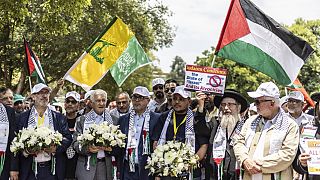
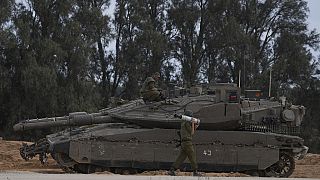
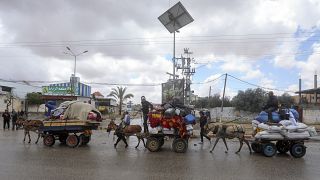

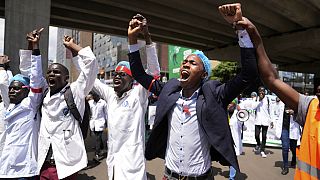
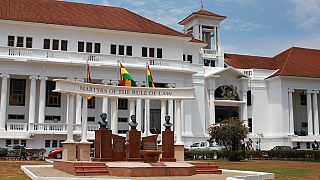
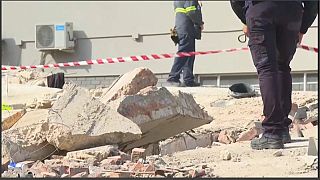
01:00
Gaza crisis deepens amid Rafah takeover
Go to video
Hamas agrees to a cease-fire; Israel says it will continue talks and presses on with Rafah assault
01:37
Gaza tops agenda at Organization of Islamic Cooperation summit
01:29
Thousands rally in Sanaa against Israel-Hamas war, Houthis threaten to expand their campaign
00:51
Israel-Hamas war: Armoured vehicles, tanks seen along southern Gaza
Go to video
Paris Olympics: Pro-Palestinian protesters demand Israel's participation be limited as was Russia's